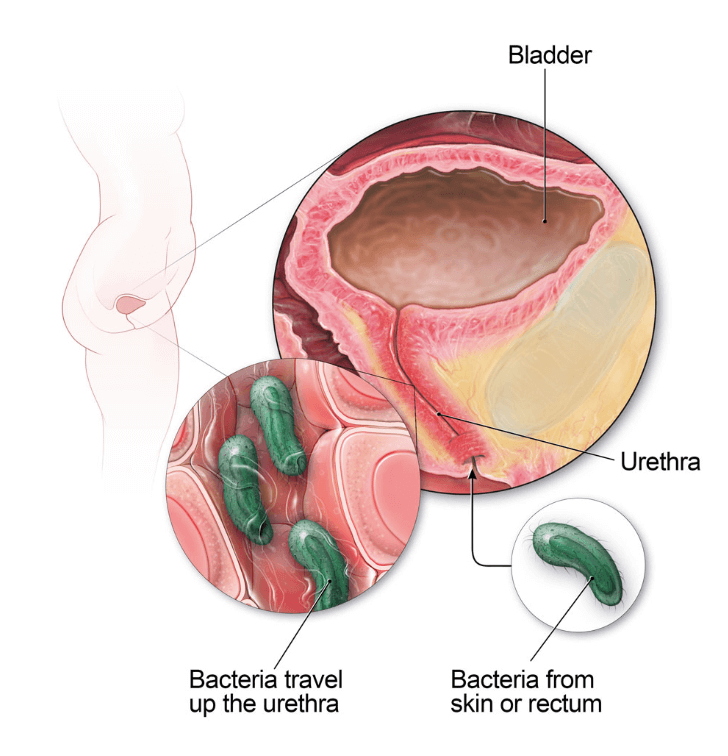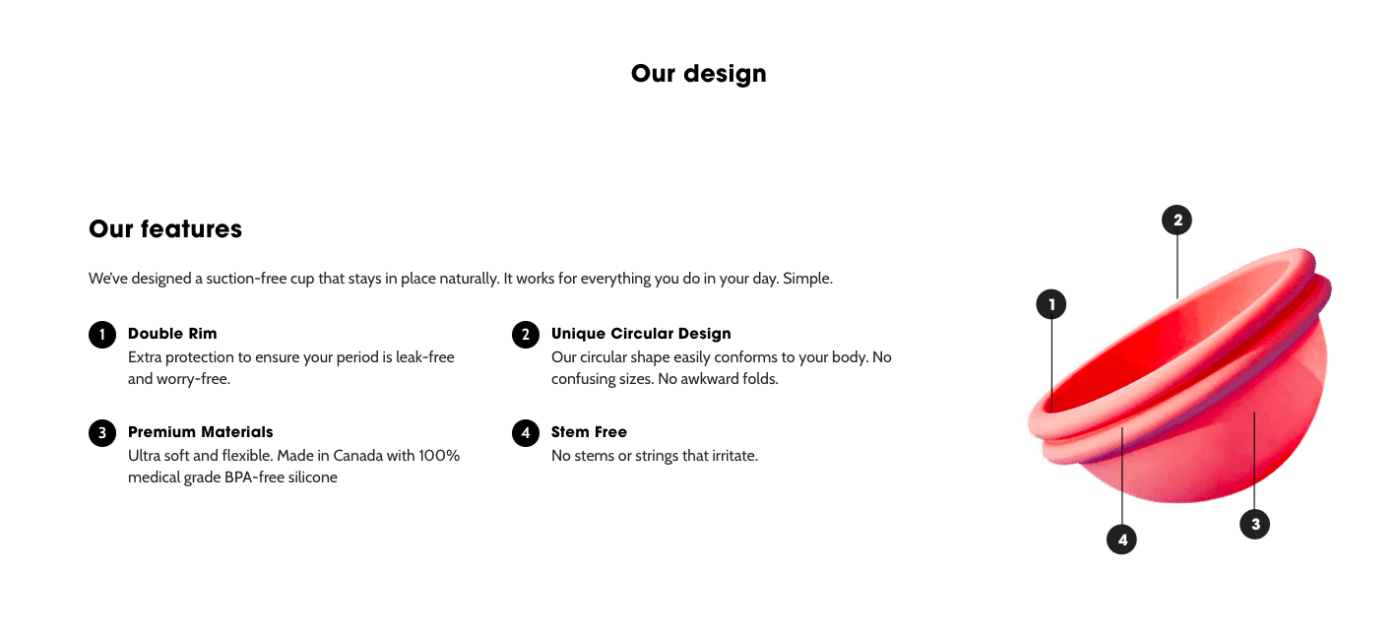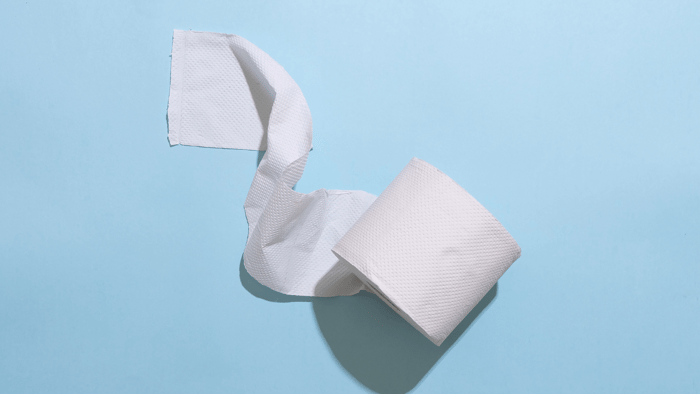Urinary tract infections (UTIs) are common bacterial infections typically affecting the lower urinary tract—mainly your bladder and urethra. However, urinary infections can involve ureter and kidney infections, too.
Having a UTI may give you a persistent urge to urinate and a burning feeling when you pee.
What’s more, recurring UTIs are not only uncomfortable, but they can bring on a whole cascade of negative emotions, explaining why people keep seeking ways to prevent UTIs. If this is you, the “better safe than sorry” proverb will hit home.
So, how do you lower your risk of contracting a UTI? With slight lifestyle changes. Buckle up! The expert tips below will get you on the right track.
1. Stay Hydrated
Staying hydrated is the golden rule of UTI prevention. If you drink plenty of fluids, you flush bacteria out of your urinary tract, preventing the UTI causing-bacteria from invading your urinary system and producing the infection.
But, how much fluid intake is enough? Start by upping your fluid intake by at least 1.5 liters a day. Researchers have found this much of an increase has resulted in significantly fewer UTI recurrences than standard intake levels.
Note: Drink plenty of water to give your urinary tract the best possible care. Experts recommend between 6 to 8 glasses per day.
If this sounds too tedious, include milk, smoothies, and decaffeinated herbal teas into your rotation!
A drink tracker can help kick-start this habit and incorporate it into your healthy lifestyle.
2. Visit the Bathroom Religiously
Another way to prevent urinary tract infections is to visit the bathroom religiously—it’s that simple.
Anyone with a history of urinary tract infections has heard doctors’ advice on not waiting too long between bathroom visits. “Holding it in” for too long gives bacteria a breeding ground, allowing them time to accumulate in your bladder, causing a UTI and potentially a kidney infection.
So, try to urinate at least once every four hours, and you’ll be serving yourself in the long run.
3. Steer Clear of Scented Products
It may sound a little off that scented products can have anything to do with urinary tract infections. But they do—douches, powders, soaps, and deodorants contain fragrances that can wreak havoc on your sensitive vulva, vagina, and urethra.
That said, the best thing you can do for your vaginal and urinary health is rinse your vulva (the outside of your vagina) with warm water or with a mild, fragrance-free soap if you prefer more than just water.
Our plant-based cleanser is a good choice because it doesn’t require lathering, and its natural ingredients keep your vagina’s pH-balanced so there’s little chance of anything nasty happening.
By the same token, tampons and pads, although not causing UTIs directly, can upset the vaginal microbiome resulting in a flare-up of harmful bacteria that can lead to a UTI. Some studies suggest tampons actually increase your risk of urinary tract infections.
4. Wipe From Front to Back
Now, this one’s a no-brainer for some, but others aren’t explicitly taught this rule. Doctors recommend wiping from front to back after pooping, and this makes sense because the rectum is the home of E.coli, the bacteria responsible for most UTIs.
This may sound self-explanatory, but wiping yourself front to back prevents the E.coli from traveling from your anus to your urethra, preventing any future UTIs.
That said, there has been some debate about wiping from front to back. So while some doctors recommend it, it’s a good idea to wipe in a way that feels most comfortable to you and practice the other preventative measures in unison with this one.
5. Add Peeing to Your Sex Ritual

(Image source: CDC)
Add peeing to your sex ritual? You may be skeptical, but this works. And here’s the rationale behind it - having sex is one of the risk factors for getting a UTI. Even more so for people with a vagina.
What happens here is that during sex, bacteria can be pushed toward your urethra. Since female urethras are shorter than males, it’s much easier for the bacteria to traverse to the bladder and cause an infection. That said, if you have a vagina, you’ll be 30 times more likely to develop a UTI than a person with a penis.
In short, peeing before and after sexual intercourse is a small sacrifice to make.
6. Take Probiotics
Taking probiotics can help prevent a urinary tract infection. Not only that, Lactobacilli strains have been associated with less frequent UTIs, but even taking oral probiotic supplements can help.
Let’s see how probiotics work. Probiotics are live microorganisms that can populate your gut and urinary tract systems with beneficial bacteria, and this balanced natural environment will keep UTIs from developing.
One study explored the effectiveness of Lactobacilli as preventative treatment in patients suffering from recurrent UTIs. Although limited in scope, study results show that carefully selected strains of probiotics can help prevent UTIs when used in the form of vaginal suppositories, especially coliform bacteria infections.
This is super useful, especially if you’ve been using antibiotics to treat a recent UTI. While antibiotics destroy harmful bacteria, they also eliminate good ones, and that’s why using probiotic suppositories to revive good vaginal bacteria is the way to go.
7. Consider Cranberry Supplements
Although the consensus is still out, cranberry supplements may help prevent UTIs, especially in people with a higher proclivity to urinary tract infections.
Now get this: cranberry is rife with a proanthocyanidin-A (PAC) compound. Furthermore, scientists discovered that PAC could keep bacteria from sticking to your bladder walls.
There’s also some research showing that cranberry supplements can reduce the occurrence of UTIs in high-risk individuals.
A double-blind, randomized, placebo-controlled trial reported a 26% lower incidence of clinically defined UTIs in people taking cranberry capsules compared to the placebo group.
Yes, the topic is still controversial in scientific circles. But if you have a history of UTIs, doctors will typically recommend cranberry capsules.
Note: Choose cranberry supplements over drinking cranberry juice because the juice won’t be able to give you high enough concentrations of PAC by any stretch of the imagination.
8. Investigate Your Birth Control Method
Some forms of birth control can disrupt the healthy vaginal microbiome leaving you more prone to repeated UTIs. Spermicides, diaphragms, and lubricated condoms are the top offenders, as they can mess up the pH-balance of your vagina and promote the growth of harmful bacteria—leading to UTIs.
If this hits home and UTIs won’t stop pestering you, speak to your ob-gyn about alternative forms of birth control. Switching to a water-based lubricant for vaginal dryness can also help.
9. Use Vagina-Friendly Menstrual Care Products

Using tampons as your go-to menstrual health protection is practical, but it can also set you up for trouble down the road. As mentioned, tampons can increase your risk of urinary tract infections.
Let’s break this down a bit.
Tampons absorb menstrual fluids and in turn, vaginas absorb that fluid from tampons. This can disrupt the delicate vaginal flora causing dryness and any number of vaginal and urinary tract infections, UTIs included.
Sanitary pads can be problematic as they sit close to your skin. Having moisture and heat at play together can contribute to bacterial growth.
Unlike tampons and pads, menstrual cups collect rather than absorb your menstrual flow guarding you against irritation, dryness, and infection.
Menstrual cups like nixit protect you for 12 hours at a time and are soft, comfortable, and flexible. But a top thing to remember is that nixit is made from 100% medical-grade BPA-free silicone. Medical-grade silicone is non-porous and therefore resists bacterial growth (unlike absorbent tampons which can create a breeding ground for bacteria). This translates to no nasty toxins and chemicals and no disruptions down there.
Stay Ahead of Your Urinary Tract Infection
Urinary tract infection symptoms can make you lose your marbles—the burning sensation, making a beeline to the bathroom more often than tolerable, etc. Worse still, a UTI can lead to a severe kidney infection. It doesn’t require a lot of thinking before you decide it’s best to prevent this.
With that in mind, when should you pay particular attention? Certain groups of people have higher risk factors for UTIs. You’d want to be more cautious if you’ve had:
- A persistent UTI
- A recent pregnancy
- A suppressed immune system
- Recently reached menopause
Also, you’ll want to touch base with your healthcare provider if you start experiencing a full-blown infection, including but not limited to the following UTI symptoms:
- Frequent urination
- Pain or burning while urinating
- Pressure or cramping in the groin or lower abdomen
- Fever
- Chills
Our mission at nixit is to make menstrual care products that support vaginal wellness.
We stand behind self-literacy, being a hub for everything vaginal wellness. Your vagina deserves the best possible care, so do take a look at some of our other informative resources:
- Vaginal Dryness: Tampons Don’t Work, Now What?
- X Main Vaginal Thrush Symptoms and Natural Remedies
- Menstrual Disc: Your A to Z Beginner Guide
Interested in menstrual cups and discs? Have a peek at our menstrual disc product page to learn more.





